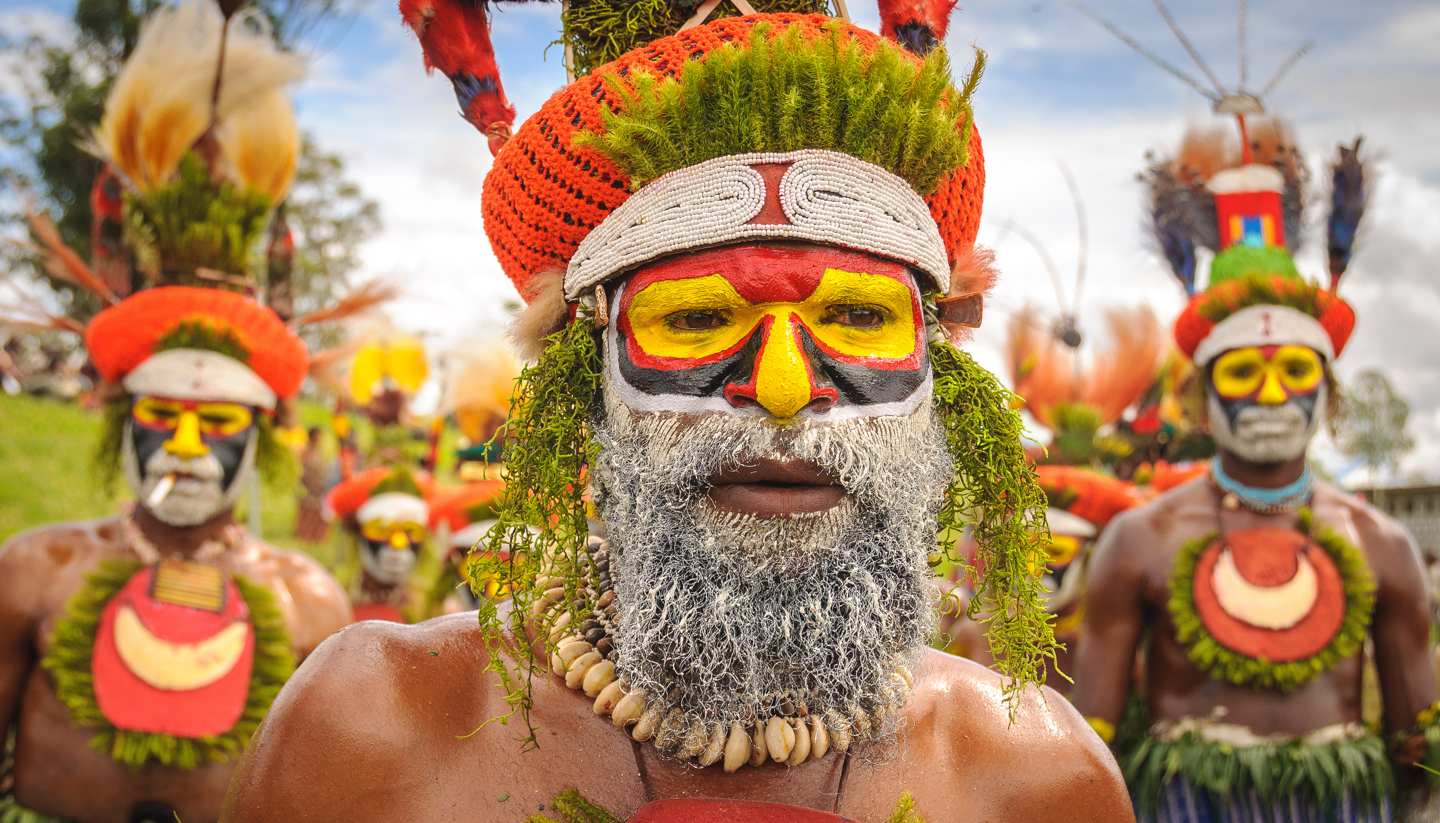Papua New Guinea History, Language and Culture
History of Papua New Guinea
New Guinea has been inhabited for some 10,000 years, but its recorded history began with the visits of Portuguese explorers in the early 16th century, followed by Dutch traders. The Dutch East India Company took control of the western half of the island in 1828, which was then split between the British and Germans in the 1880s until after World War 1 when it was transferred to the sole control of Australia before being occupied by the Japanese during World War 2.
After 1945, the renamed Papua New Guinea reverted to Australian administration and was granted independence in 1975. It remains a separate Commonwealth realm with Queen Elizabeth II as its head of state, but its Governor-General – currently Sir Michael Ogio – is unusual in that the post is elected by the legislature rather than appointed by government.
The main problem for successive governments has been how to make the most of Papua New Guinea's abundant natural resources in order to finance its development while maintaining its natural environment. It's a delicate balancing act that has led to civil unrest, not least in 1989 when a secessionist revolt on the copper-rich island of Bourgainville flared up. It was to claim 20,000 lives before it was resolved in 2007 with local autonomy and the promise of a referendum on independence before 2020.
The tension between protecting and exploiting the country's natural assets continues as discussions around reopening the massive Panguna copper mine – once the world's largest open pit copper mine – in Bourgainville show few signs of resolution.
Papua New Guinea is one of the world's most culturally diverse nations with more than a thousand cultural groups and some 852 languages recognised, of which 12 have no known speakers. It is also one of the least explored places on Earth with many undiscovered species of animals and plants thought to exist in the country's interior, as well as groups of people that have had no previous contact with the outside world.
Did you know?
• Papua New Guinea's capital city Port Moresby hosted the Pacific Games in 2015.
• Transport is severely hampered by the mountainous terrain and many remote villages are only accessible by air or foot. The capital is not linked by road to any other major towns.
• Sea shells were abolished as currency in 1933, although the tradition lives on in some local customs such as symbolic wedding dowries.
Papua New Guinea Culture
Religion in Papua New Guinea
90% Christian.
Social Conventions in Papua New Guinea
Papua New Guinea's culture still includes elements of a primitive lifestyle. There are universities at Lae (which is a University of Technology with a liberal infusion of Europeans and North Americans) and at Port Moresby. Casual clothes are recommended. Informality is the order of the day and although shorts are quite acceptable, beachwear is usually best confined to the beach. In the evenings some hotels expect men to wear long trousers but ties are rare. A long dress is appropriate for women on formal occasions.
Language in Papua New Guinea
The official language is English, which is widely used in business and government circles. Pidgin English and Hiri Motu are more commonly used (an estimated 742 other languages and dialects are also spoken).


